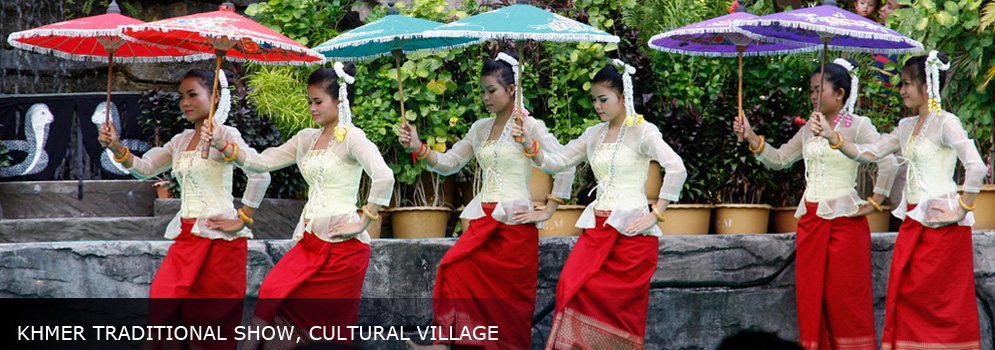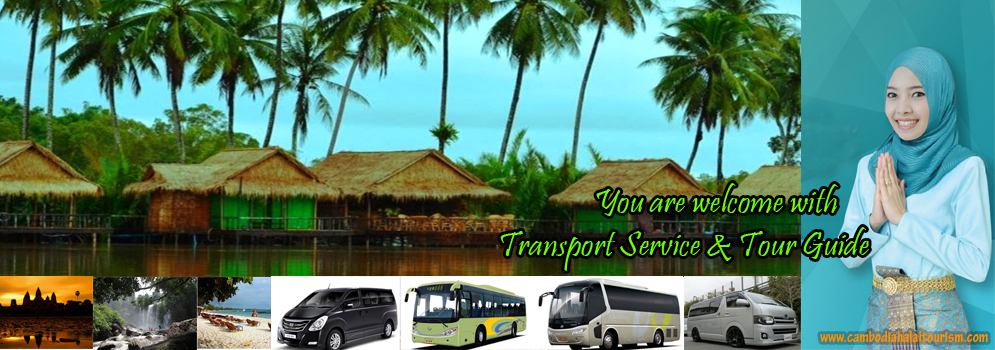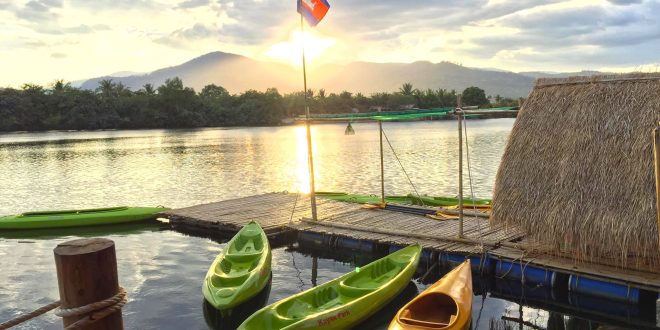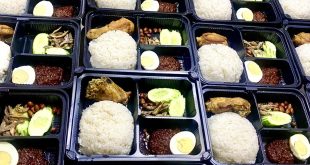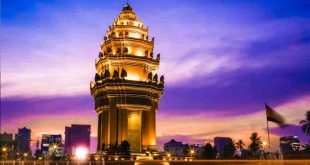Halal Tourism (Cambodia)
Phnom Penh, June 1st, 2023 —
Kampot is a sleepy riverside town, and arguably, the lack of activities is part of its charm. But there are things to see and do if you scratch the surface.
Bokor Mountain
The most popular Kampot sightseeing trip is to Bokor Mountain, formerly a French colonial hill station resort and site of a royal summer vacation home. Until recently it was accessible only during Water Festival, but now there’s a new road to Bokor. The road was built to accommodate development on the mountain, which includes an exceedingly ugly casino. But Bokor has its charms as well, including the Popokvil Waterfall and several abandoned colonial-era buildings, including the eerie old Catholic Church and the old casino, two spooky reminders of the former French presence here. If you want a run-down of all of the sights of Bokor.

Countryside tours
A popular activity in Kampot is a half- or full-day countryside tour by tuk tuk. The country surrounding Kampot is beautiful and the views from the road of the rice paddies are spectacular. Tours can include a visit to Phnom Chhnork, the salt flats, a Kampot pepper plantation, the “secret” lake, and even Kep. If you’re after Kampot pepper, Sothy’s Pepper Farmis the best one to visit, but it’s actually much closer to Kep than to Kampot, as are the lake and salt fields, so if you’re going to both towns, we’d recommend doing the countryside tour from Kep instead.

Spend the day in Kep
If you’re staying in Kampot, you can still enjoy all of the pleasures of a day in Kep. It’s a scenic tuk tuk ride away (35 to 45 minutes, costing around $12 for a return trip), or you can take the Crab Shuttle, a boat that leaves Kampot at 9:30 a.m. every day and times its return to catch sunset on the Kampot River. In Kep, we suggest gorging yourself on crab at one of our favorite crab shacks or heading into the Crab Market and buying your seafood directly from the crab ladies. Some of the resorts in Kep will let you use the pool for a small fee, or you can visit the Kep beach and soak up some rays. It is even possible to spend an hour or two on Rabbit Island before heading back to Kampot, or take one of the dedicated boats from Kampot that go straight to Rabbit Island.

Get in the river: kayaking, swimming, and paddleboarding
Kampot is a river town, and any visitor should spend some time on, or at least near, the river. All of the riverside guesthouses and resorts in town offer a raft of river activities (get it?) for guests and non-guests, including fishing expeditions, river cruises, stand-up paddleboarding, kayaking, wakeboarding, and even water skiing. If all of this seems too ambitious, just jump in and go for a swim. When swimming, be aware that there are long-tail boats putting along the river, particularly around dusk, when they head home for the day, as well as sunset cruise boats, so be sure to stay out of their way. Guesthouses including Greenhouse and Naga House have dedicated platforms for jumping into the river, and Champa Lodge has its own tiny beach. And no, there are no crocodiles in the Kampot river (it’s an urban myth).

Sunset cruise
Even if you’re not into water sports, you can enjoy a sunset cruise on the Kampot River. Many of the resorts in town offer their own boat rides or can hook you up with a nearby operator. Travel agents in town also sell tickets, which usually cost between $5 and $10. Drinks are almost always available on the boat.
Caving and spelunking
For those not content to relax by the river, it’s possible to go spelunking at the caves of Phnom Kbal Romeas. Although it’s possible to go independently, we recommend Kampot-based adventure company Climbodia, which offers half-day tours for everyone from novices to experienced climbers. Their best-selling Discovery Tour includes a variety of activities, including via ferrata, abseiling, caving, and top-rope climbing, and is a great choice for beginners who want to explore the mountain and try a variety of climbing activities.

Go cycling
You can rent a bicycle for as little as $1 a day from many guesthouses in Kampot. Depending on your level of enthusiasm for exercise, you can take a turn around the stunning rice paddies surrounding Kampot or cycle to Teuk Chhou, a swimming hole about 9 kilometers (5.5 miles) outside of town. Ambitious cyclists can go to Kep, 25 kilometers (15 miles) away, but it will be a hot, sweaty ride. Our recommendation, admittedly on the lazy side, is to just cycle around town and take in the Kampot architecture, then maybe go for a spin just outside of town in the rice paddies before coming home to reward yourself with a cool drink by the river.
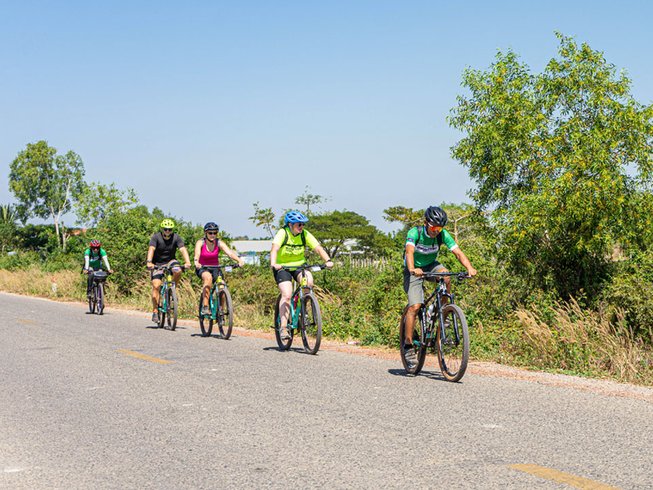
Tuek Chhou
Just outside of town is Tuek Chhou, a swimming hole popular with Cambodian youth and families. It’s an easy 1.5 hour bicycle ride away, or it can be reached by moto or tuk tuk. Once you’re there you can swim or enjoy the hammocks or picnic facilities that are available for a dollar or two, and there are food vendors selling the usual items as well as a few Kampot specialities, such as a local-style num banh chok. Locals refer to Tuek Chhou as a waterfall, but it’s actually rapids that during dry season aren’t very rapid at all. There’s an “entrance fee” of $1 for foreigners, but it’s not official and can be negotiated down, particularly if you speak Khmer.
Kampot Provincial Museum
Always a good choice for a rainy day (here are a few more), the Kampot Provincial Museum costs only $2 per person and is home to archaeological finds from around Kampot including artifacts from the Pre-Angkorian Era, pieces from modern artists, and details of the future plans for Kampot. Exhibits about the history of Kampot are actually interesting, and captioned in English, French, and Khmer.

